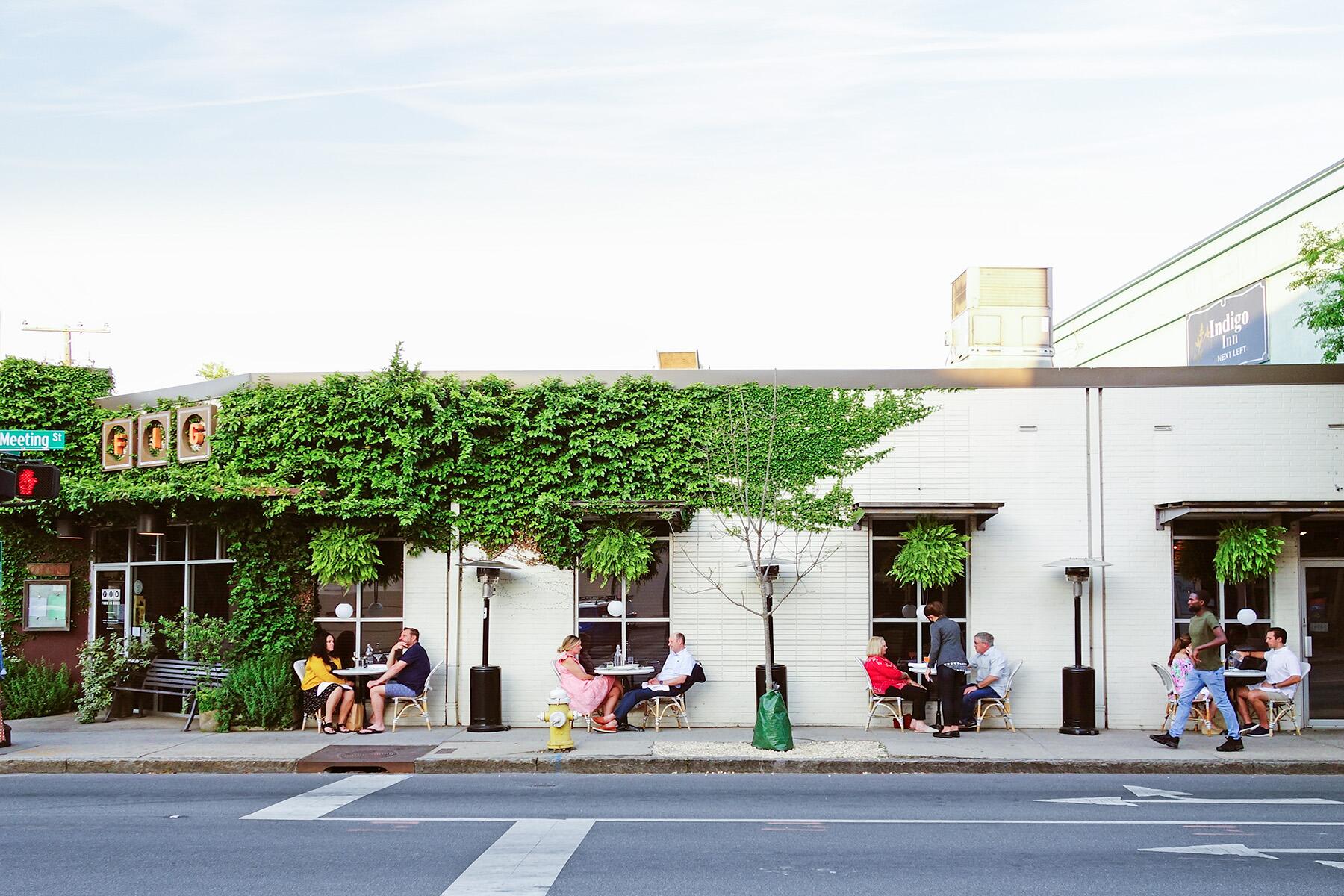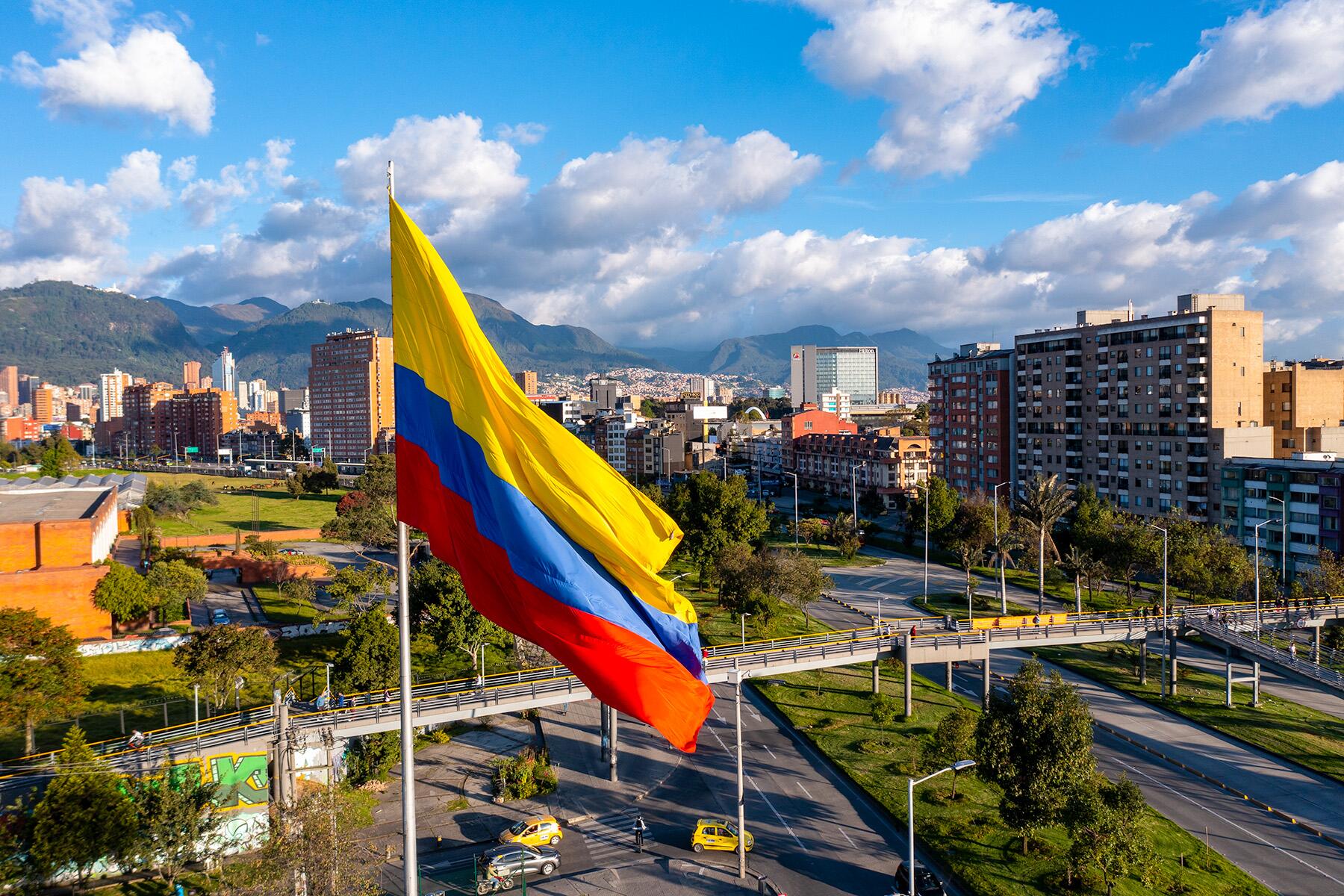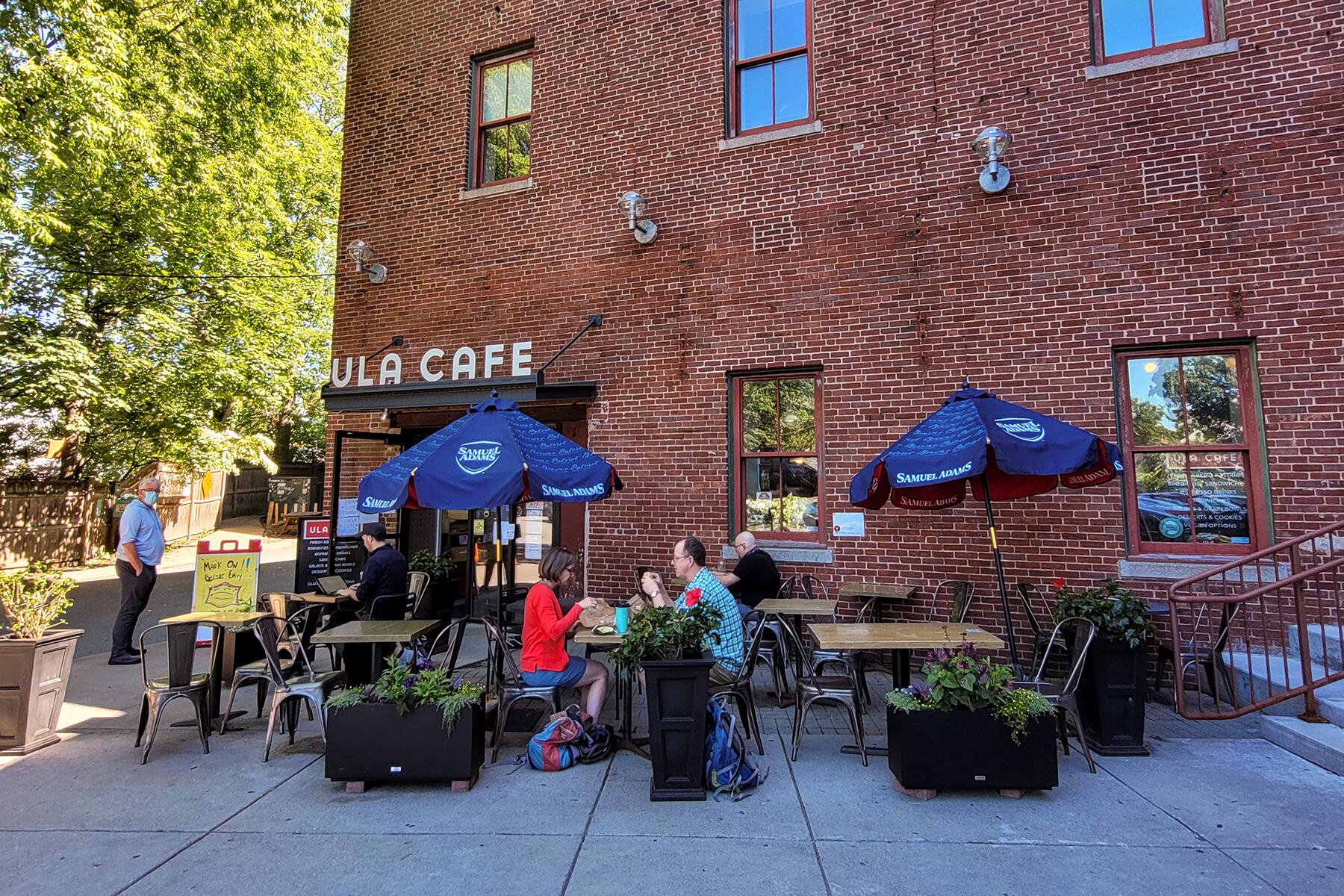“We wanted to create a space that was welcoming to everybody."
Ula’s Cafe is a Black-owned, woman-owned, veteran-owned local favorite in the heart of Boston’s Jamaica Plain (“JP” as Bostonians call it). The community-focused cafe opened in 2007 and represents an inclusive space for residents. As of June 2021, Ula Cafe is now under new management. Current owners, husband and wife duo Marvin Mathelier and Beth Santos, and their business partner, Chef Kelly Fernandes, are living out their dream of owning a cafe.
Too often, the dynamics of a community invariably shift when companies move into a neighborhood. But for Santos, Fernandes, and Mathelier, their commitment to preserving the legacy of inclusion and locally-sourced ingredients at Ula Café has proved successful and won the hearts of their customers.

“When Ula went up for sale, we thought, this is an opportunity not just to serve coffee but to bring our community together. This area is changing and not always in a good way, and the gentrification is real,” explains Santos, who is also the Founder of Wanderful, a travel community, and platform geared towards female travelers.
Soon, Santos and Mathelier teamed up with the Main Street Program and Chef Fernandes, who is trained in the art of pastry-making and has run many restaurants. “[Chef Fernandes] also wanted to own her own place and is all about sustainable and locally-sourced produce,” adds Santos.
For Ula Café’s owners, this local staple is more than just a business venture; it’s a community cafe with a tangible impact in one of Boston’s more diverse neighborhoods. “We wanted to create a space that was welcoming to everybody,” says Santos.
Recommended Fodor’s Video
Ula Café sources its ingredients from fair-trade and equitably-priced places, putting a special emphasis on supporting women and Black-owned businesses. “We are making sure that things are coming from responsible places. All you have to do is buy a cup of coffee and know you’ve helped the world in a little way, every day,” adds Santos.
The Ula philosophy around building an inclusive community does not stop at how they source their ingredients. The café also offers monthly drink specials that support different local or national non-profit organizations. It’s yet another example of how the café’s ethos and mission to give back permeates every facet of its business.
With the pandemic, the city of Boston extended support to local businesses, including Ula Café. The café received free legal support from the city, which proved instrumental in negotiations with the property’s landlord. Similarly, the Ula team has benefited from resources available at Egleston Square Main Street.

“The Executive Director of Egleston Square Main Street put us in contact with Kelly Fernandes, and that’s how we became business partners,” says Mathelier. “She firmly believed in our capabilities, understanding that this is something we wanted to do, but at the same time making sure we were successful. We’ve got a lot of support and resources provided to us throughout this whole process.”
During the pandemic, community support has been integral in the transition to new ownership at Ula. “Customers come and hang out on the patio or order take-out. When we came on as owners, we had a lot of people who came and said, ‘That saved me! When everything was closed, Ula was open.’ That’s why Ula is here today because there’s this really deep commitment from the community to this café,” muses Santos.
From its inception, Ula Café’s mission has been to champion inclusion through the lens of community engagement. For Mathelier, who is in the neighborhood association and has seen a lot of changes in the area (including an increase in evictions), this mission deeply resonates and is why both he and Santos were attracted to Ula as customers before becoming owners.
“We’ve been in the JP neighborhood for four years. I am originally from New Hampshire, and my husband is from New York City. We were living in Chicago and wanted to be closer to family and fell in love with JP,” remembers Santos, who says moving to a culturally-diverse community was important for her family. “We moved to JP looking for [diversity], and Ula became our local cafe.”
Naturally, some longtime customers of Ula were concerned about what would happen to the space under new ownership. “When we came on board, and people found out we were local and lived a few blocks away, they were excited about it,” remembers Mathelier. “The first week we opened, people in the community came and brought flowers from their garden.”
Since its inception, Ula has been known for being community-oriented, and the new owners wanted to continue with that mission. Santos, Fernandes, and Mathelier are continuing Ula Cafe’s legacy with a pay-it-forward wall where customers can purchase a meal for another guest. “We have this whole wall of post-it notes where you can buy something in advance for the next customer,” explains Santos.
At a time where people are experiencing housing insecurity due to the pandemic, the Ula team hopes that its pay-it-forward initiative can help combat some of the financial strain experienced by Bostonians. Beyond its efforts to both give back and support its community, the owners of Ula are activists in their own right, hosting myriad events.
“We’ve done a lot of racial justice events in our community. Marvin is the founder of a local organization called “Call It Out,” which eliminates systemic racism in Egleston Square. They had meetings on our patio during Juneteenth. We feel very strongly about making sure Ula is a place where this dialogue can happen,” shares Santos, who also reveals the café’s plans to introduce open mics in 2022.

Looking ahead, the team behind the café is optimistic about what’s in store for Ula. To help shape the direction they take the beloved café, the owners turned towards the people who know it best: their customers. In asking the community what they hope to see more of at Ula, the overwhelming response was reflections of the team’s own culture, including dishes from Portugal, Haiti, and Cape Verde.
“Ula is a place for everyone and anyone that’s part of this community,” adds Mathelier. “I want to make sure whether they are on this side of Egleston Square or half a mile away that they feel welcome and they can find something in here for them. That’s important, and that’s where I want Ula to go.”



